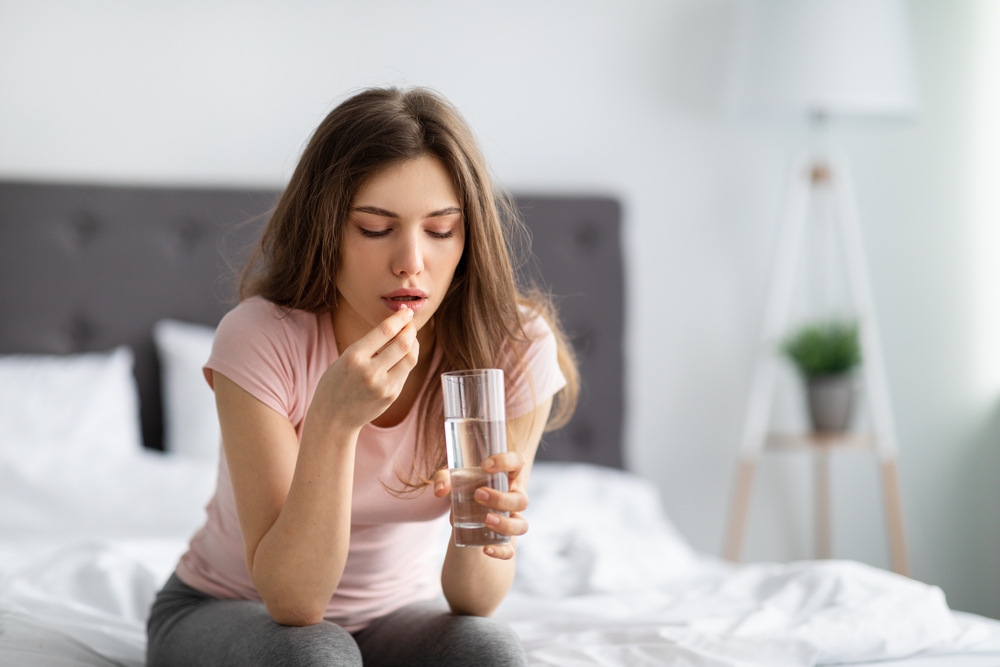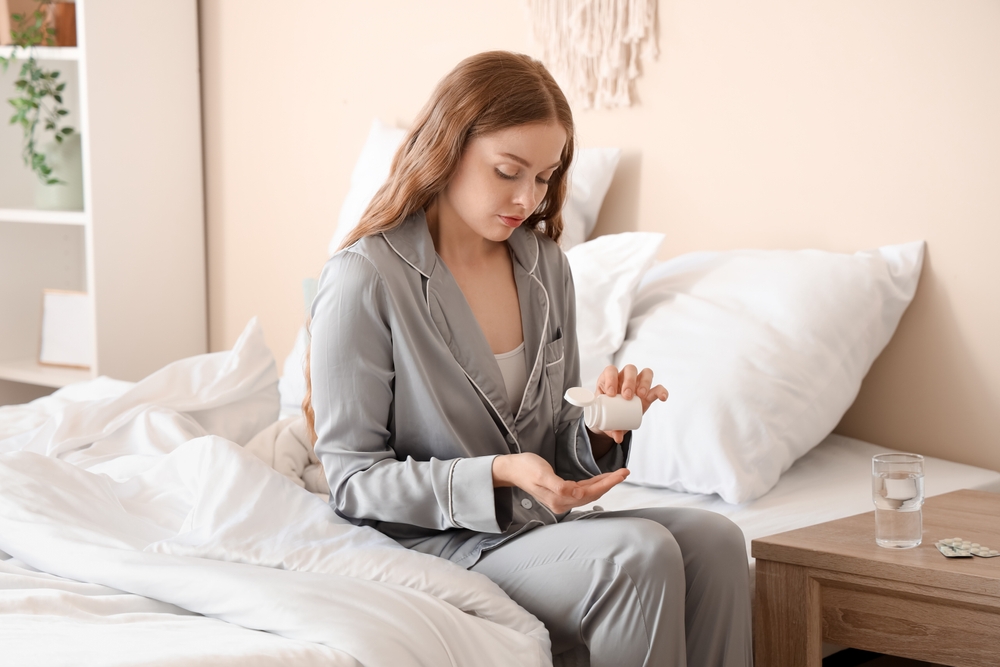Last Updated:
July 21st, 2025
Sleeping Pill Detox | Withdrawal Issues to Expect
Sleeping pills are usually prescribed with good intentions and designed to be a temporary fix during a tough time. But if that temporary solution becomes a long-term habit, sleeping pills addiction can sneak into your life. When that happens, the first thing you need to do is break your physical dependency through sleeping pill detox. This may sound easy, but sleeping pill withdrawal symptoms can be intense and dangerous. A medical detox will remove all the drug traces and toxins from your body so your brain can relearn how to wind down, reset and rest without sleeping pills.

The importance of sleeping pill detox
Even if you’re mentally ready to stop using sleeping pills, your body might have a very different response. Sleeping pills work by slowing brain activity, so when you stop, everything speeds up, often more than you can handle. This sudden change can bring on a range of intense and disruptive sleeping pill withdrawal symptoms, including:
- Intense rebound insomnia
Extreme anxiety - Nausea, vomiting or digestive discomfort
- Persistent headaches or muscle aches
- Sweating
- Tremors
- Increased heart rate
Difficulty controlling your temper - Feeling of depression
- Memory and concentration issues
- Delirium, seizures or hallucinations (in only the most severe cases)
A medical drug detox can soften the impact of withdrawal and stop things from spiralling out of your control. With professional support, your nervous system can reset slowly, reducing the risk of complications and setting you up for what comes next during the rehab treatment process.
The detox treatment process for sleeping pills
The first step in sleeping pill detox is a full medical assessment as soon as you arrive for sedative drug rehab. This is where your detox team will go over exactly what you’ve been taking, how it’s affected you and what kind of support you might need during withdrawal. It helps the team create a personalised sleeping pill detox plan that suits you rather than a generic schedule for everyone.
From the beginning of detox to the end, you will be looked after by trained professionals who understand how unpredictable sleeping pill withdrawal can be. Mental health and addiction issues often feed each other, including during withdrawal, so both your physical and emotional reactions will be carefully observed. If your symptoms become too much, your care team can respond immediately, making adjustments to keep you safe and supported.
You will be encouraged to rest and eat as much as your body allows, stay hydrated and take small steps toward feeling strong and fit again. If you need reassurance or don’t understand what’s happening, help is always right there. This first stage of recovery gives your body the time it needs to reset and recover from drug addiction, preparing you for what comes next.
Medical detox is a cornerstone of various sleeping pill rehab programmes, including:
Sleeping pill withdrawal symptoms timelines
Sleeping pills withdrawal doesn’t adhere to a one-size-fits-all pattern. Factors like the specific medication, duration of use, dosage and your physiology can all affect your experience. However, understanding typical withdrawal timelines can help set your expectations and prepare you for the journey ahead:
- 12–48 hours: Initial symptoms may include anxiety, restlessness and rebound insomnia.
- 2–5 days: Symptoms can intensify, potentially leading to mood swings, nausea and, in rare cases, seizures.
- 1–2 weeks: Physical symptoms typically diminish, but psychological effects like sleep disturbances may persist.
- 6–12 hours: Early withdrawal signs include anxiety, irritability and cravings.
- 1–5 days: Symptoms may peak, presenting as insomnia, tremors, hallucinations and seizures in the rarest and most severe cases.
- 1–2 weeks: Physical symptoms often subside, but sleep disturbances and mood swings can linger.
- 1–3 days: Initial symptoms may include dizziness, fatigue and flu-like feelings.
- 4–7 days: Symptoms usually reach peak intensity with the potential for “brain zaps,” mood swings and sleep disturbances.
- 2–4 weeks: Symptoms generally decrease, but some people may experience lingering effects like insomnia or anxiety.
Is it safe to detox from sleeping pills at home?
It can feel tempting to detox from sleeping pills quietly at home with no hospital stays and no awkward conversations; just get through it and move on. But sleeping pills affect your body and brain in powerful ways, and quitting suddenly or without support can cause serious withdrawal symptoms. These can cause discomfort, distress, relapse and even life-threatening medical issues.
With a professional sleeping pill detox setting, your symptoms are monitored closely, and your taper is controlled by a medical team who knows what to expect. That level of monitoring and expert medical assistance can be the difference between pushing through the tough times and breaking down completely.

Begin detox for a sleeping pill today
Whether you’re ready to detox now or just exploring your options, Addiction Helper is here for you. We can guide you to a professional detox programme that is safe, compassionate and equipped to handle sleeping pill withdrawal with care. There is no pressure and no commitment, just honest advice from people who understand. Talk to us today and take the first step at your own pace.
Our compassionate team are ready and available to take your call, and guide you towards lasting the lasting addiction recovery you deserve.
Frequently Asked Questions
(Click here to see works cited)
- Durrani, Mateen. “Sleeping Pill Detox & Withdrawal.” Primrose Lodge, 5 March 2025, https://www.primroselodge.com/prescription-drug-detox/sleeping-pills/. Accessed 24 May 2025.
- NCBI. “Using medication: Learn More – What can help when trying to stop taking sleeping pills and sedatives?” NCBI, 24 August 2021, https://www.ncbi.nlm.nih.gov/books/NBK361010/. Accessed 24 May 2025.
- UK Addiction Treatment Centres. “Sleeping pill detox | Sleeping pills withdrawal symptoms | UKAT.” UK Addiction Treatment Centres, 27 March 2025, https://www.ukat.co.uk/detox/drug/prescription/sleeping-pills/. Accessed 24 May 2025.

